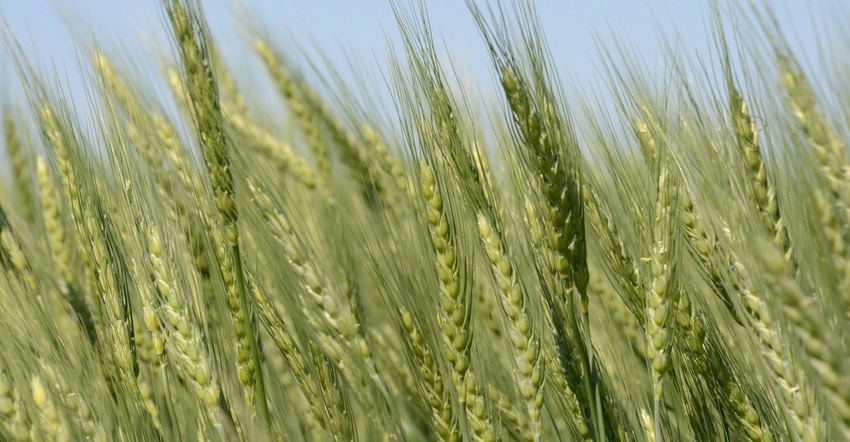October 6, 2020

Wheat remains one of the key crops grown in the United States where saving seed for following year use is common. Often, farmers will select for yield and quality, but there are a few changes that have come into play to keep in mind.
The change started back in the 1920s, when corn farmers found that buying new hybrid corn seed every year could provide improving yields and uniform performance. The added benefit of the approach was the creation of a vibrant corn seed business where significant research investment continues and yields keep rising. But what about nonhybrid crops like wheat?
If you’re saving seed, there are some rules you need to understand to maximize your effort, and perhaps avoid trouble with the authorities.
Understand the Plant Variety Protection Act. Passed in 1970, the aim of this act is to encourage investment in development of new plant varieties, including wheat. The investment is paying off in new and improved wheat genetics, but there’s an important component to the act affecting a farmer’s right to save seed from some varieties. Section 113 of the act states: “It shall not infringe any right hereunder for a person to save seed produced by the person from seed obtained, or descended from seed obtained, by authority of the owner of the variety for seeding purposes and use such saved seed in the production of a crop for use on the farm …”
Basically if you plant ordinary certified wheat seed that is plant-variety-protected, you can keep the seed grown from that variety to plant on your own farm. But there are exceptions.
The rise of certified-seed-only varieties. Exceptions in the Plant Variety Protection Act are the certified-seed-only varieties. When planting these CSOs, as they’re known, you must purchase seed annually. It can be sold for grain, but cannot be replanted.
In addition, if you buy noncertified wheat seed of a PVPA-protected variety from someone else, it is likely the purchase is in violation of the act, and saving seed of subsequent production is also a violation. Wheat varieties under PVPA must be purchased from permitted seed dealers only.
Contracts matter for new technology. The most recent restrictions to saving seed are those imposed by patented rights and sales contracts. In most cases, farmers are prohibited by patent laws from saving seed of varieties with patented traits like Roundup resistance in soybeans and Clearfield in wheat. This is usually enforced by a contract signed at the point of purchase. Even if traits aren’t patented, saving seed may be prohibited as part of the sale contract.
There are a range of CSO varieties, including: AP503 CL2, Brawl Cl plus, Breck, Byrd Cl plus, Crescent AX, Guardian, Fortify SF, Incline AX, LCS Fusion AX, Monarch, Oakley Cl, Snowmass, Snowmass 2.0, Sunshine, SY Legend CL2, SY Sunrise, Thunder Cl, WB4269, WB4418, WB4595, WB4699, WB4721 and WB4792. Other varieties may be added to this list as they are released. Varieties not on the CSO list can be replanted every season without purchasing new seed.
There can be consequences. Planting illegal seed could hit your farm, since the owner of the variety can go so far as to file a lawsuit asking for destruction of the crop. There can also be monetary awards and attorney fees. And if state or federal officials get involved, fines could be levied for each occurrence.
As a best management practice, farmers should know what variety they are planting and follow the protocol for that variety. If they did purchase certified seed, they should read the label and sales contracts to see if there are any restrictions to saving seed.
The new rules are generating new revenues that benefit wheat growers through reinvestment in wheat development. This is leading to new varieties with traits that improve yield and quality.
Source: Kansas Wheat Alliance, which is solely responsible for the information provided and is wholly owned by the source. Informa Business Media and all its subsidiaries are not responsible for any of the content contained in this information asset.
You May Also Like




